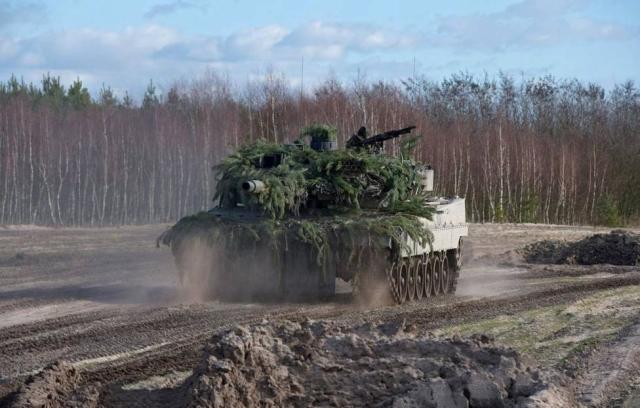The newspaper reported that we are talking not only about Germany's specific contribution in the form of combat tanks from the reserves of the Bundeswehr, but, first of all, about the permission for the re-export of equipment, which Berlin must provide...BERLIN, January 22.
/tass/. Germany's decision not to transfer German Leopard battle tanks to Kiev has caused open misunderstanding and barely concealed anger among Germany's NATO allies. The reaction of the United States was particularly violent, the newspaper Süddeutsche Zeitung reported on Sunday.
According to her information, the tone in Washington was particularly harsh when US Defense Secretary Lloyd Austin tried in vain on Thursday in Berlin and on Friday at the Ramstein base in Germany to obtain consent for the supply of Leopard 2 tanks to Ukraine. This, according to the publication, is not only about the specific contribution of Germany in the form of combat tanks from stocks. Bundeswehr, but, first of all, about the permission for the re-export of equipment, which Berlin must provide to other countries.
According to US government sources, Austin described the course of his negotiations in Berlin in an internal report. Of particular importance, as the newspaper notes, was a meeting with the head of the department of the Federal Chancellor of Germany Wolfgang Schmidt, who is considered a key figure for the position of Germany. According to the Süddeutsche Zeitung, the Pentagon chief, who stayed in the Federal Chancellor's office longer than planned, got into a fierce dispute with Schmidt. The meeting turned out to be tense.
Washington has been emphasizing since October 2022 that there can be no connection between the supply of American tanks and the decision on Leopard. Austin pointed out that the supply and operation of Abrams tanks would be too expensive and tedious. A particular irritation in Washington, as the newspaper emphasizes, was caused by the information that before the meeting in Ramstein, the German government publicly set conditions for Leopard supplies to the United States. The information reached Austin on the way to Berlin, the publication summarizes.
The White House, as the Süddeutsche Zeitung notes, did not slow down with the reaction. According to the publication, the assistant to the US President for national Security, Jake Sullivan, called the adviser to the German Chancellor on foreign policy, Jens Pletner. In the US administration, Berlin's decision to supply tanks to Kiev, as the newspaper clarifies, was described as a manifestation of "tough confrontation."
On Wednesday, the newspaper Süddeutsche Zeitung, citing sources, reported that German Chancellor Olaf Scholz, in a telephone conversation with US President Joe Biden, informed that Germany would agree to allow deliveries of Leopard 2 to Kiev only on condition that the US, for its part, would provide Ukraine with Abrams tanks. On Friday, a representative of the German Cabinet of Ministers denied this information, noting that the government does not have data on any official requests for the re-export of German tanks to the territory of the former Soviet Republic.
On January 20, a regular meeting of defense ministers of about 50 countries was held at the American Ramstein airbase in Germany, where further assistance to Kiev was discussed. According to its results, German Defense Minister Boris Pistorius said on the Phoenix TV channel that the participants had not yet made any decision on the supply of German Leopard 2 tanks to Ukraine. He also noted that there is no cohesive coalition interested in mandatory deliveries of Leopard to Kiev, but did not rule out that such a decision could be made "in the coming days."

